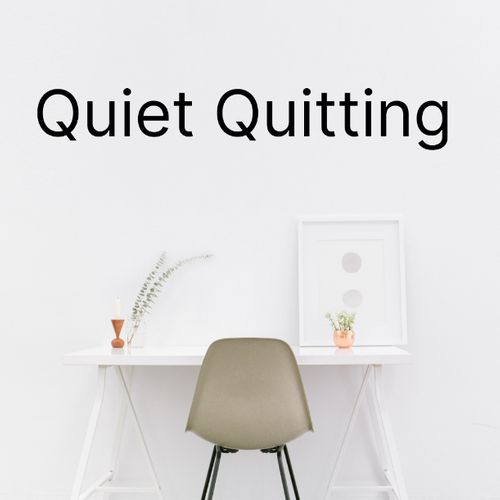"Quiet quitting": a risky trend that's got even more dangerous
Nov 23, 2022 · 2 mins read
0
Share

A friend of mine said she decided to follow the quiet quitting trend. She will put in minimal effort but continue to work at her company. She felt her company wasn’t valuing her efforts. Other reasons were a lack of good projects, & no promotion. But is there more to this trend?
Save
Share
What is quiet quitting?
Quiet quitting refers to doing the minimum requirements of one's job and putting in no more time, effort, or enthusiasm than absolutely necessary. According to a Gallup report, only 15% of the American workforce are actively engaged at work.
Save
Share
Why are people doing it?
Some do it because of a burnout, or a bad work culture. Some make a conscious choice to have a work-life balance and not fall into the trap of hustle culture. People are not being lazy but have valid reasons.
Save
Share
But is this the right time to follow the trend?
Quiet quitting emerged in the United States in the early 2020s, driven largely by social media. But things have changed now, and following this trend could be risky.
Save
Share
Amid fears of recession, most companies are trying to cut down their costs and re-budgeting. Post-COVID, online companies in sectors like E-commerce and Ed-Tech faced losses as business again moved offline.
Save
Share
Mass layoffs - Big tech companies like Meta, Twitter, Stripe, Salesforce, Coinbase, Shopify, and Netflix have fired thousands, and will continue to do so if needed.
Hiring freeze - Google, Amazon, and Walt Disney have announced a hiring freeze.
Save
Share
Why is it a bad idea?
In the current economic condition, employees should try to perform better and keep their jobs. Commitment to the company, and offering innovative ideas, makes you happier in the short term and more valuable in the long term.
Save
Share
Quiet quitting also creates a psychological barrier to good work. Kelsey Wat, a career coach: “Quiet quitting removes any emotional investment you might have from your work, which is sad given the fact that most of us spend so much of our time at work.”
Save
Share
People of color and women might not have the privilege to follow the trend; indeed quitting might increase the already existing inequities at work. Creating boundaries is important, but underperforming will either get you the sack or you’ll be forced to watch colleagues advance.
Save
Share
Final Note: Warning: don’t follow the quiet quitting trend without first examining the world economy, your mental health, and your finances. Quitting is a luxury few can now afford. And it’s just morally wrong to mentally quit a company that continues to pay you.
Save
Share
0